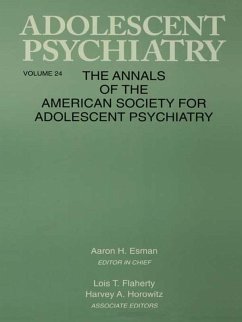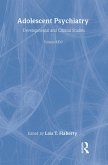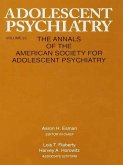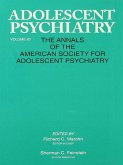Volume 24 of The Annals surveys four broad areas of adolescent psychiatry that speak to the challenges and opportunities now before the field. Part I offers three important reassessments of adolescent development; they focus, respectively, on separation-individuation theory, the interpersonal matrix of adolescence, and the psychology of belonging. Part II explores the future of child and adolescent psychiatry in the context of school-based mental health services. Several assessments of ongoing school-based mental health clinics provide the context for reflection on the future of school-based delivery systems. Part III examines forensic issues in adolescent psychiatry and includes an overview of forensic psychiatry for adolescent psychiatrists, an update on juvenile justice, and a review of the issue of competence in adolescents. Finally, Part IV offers a series of current perspectives on psychopharmacology in relation to adolescence. Contributors review the current status of pharmacological treatment of different adolescent populations, including adolescents with behavior disorders, affective disorders, anxiety disorders, pervasive developmental disorders, and psychosis. The volume concludes with a timely examination of the role of psychiatric consultation on an adolescent medical service.
Dieser Download kann aus rechtlichen Gründen nur mit Rechnungsadresse in A, B, BG, CY, CZ, D, DK, EW, E, FIN, F, GR, HR, H, IRL, I, LT, L, LR, M, NL, PL, P, R, S, SLO, SK ausgeliefert werden.









